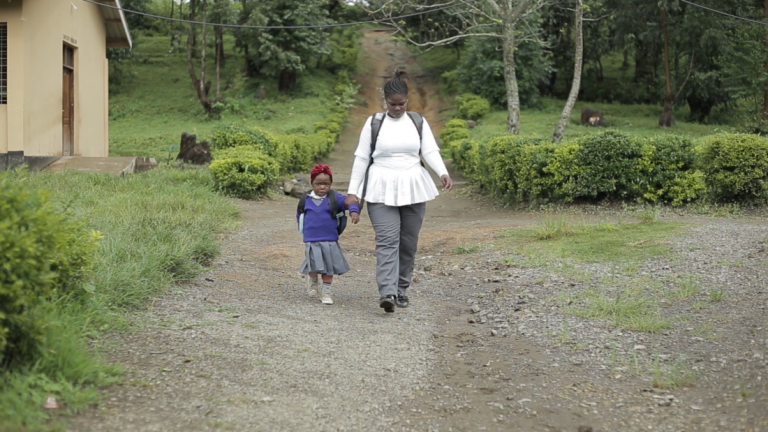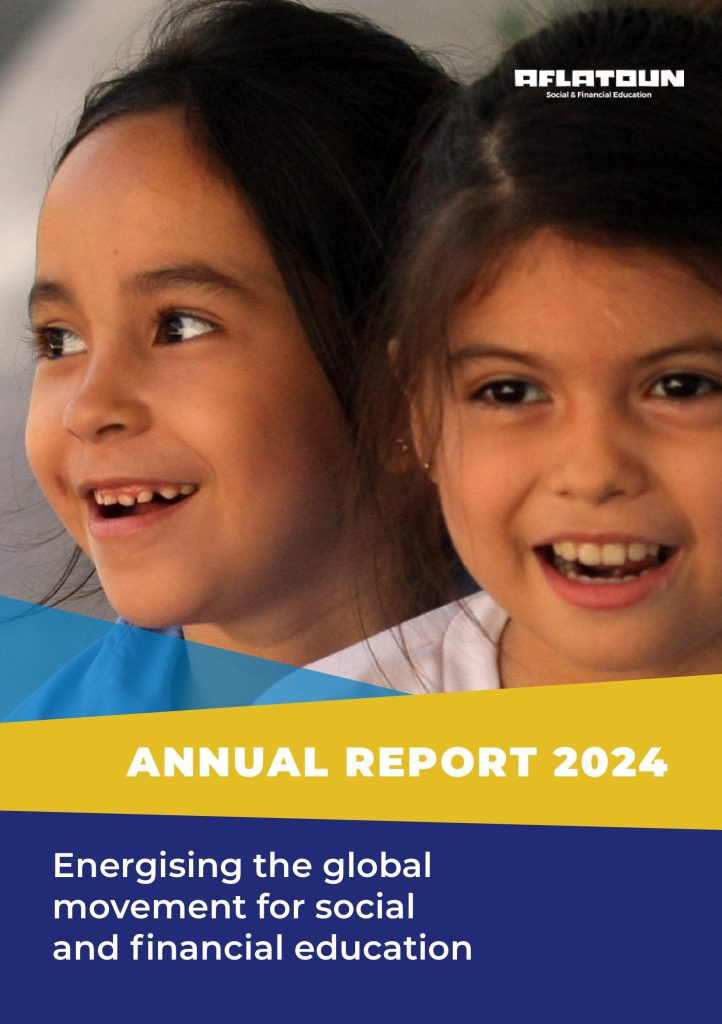A Second Chance at Education
On the final part of the journey that brought us to discover the inspiring and powerful stories of young Tanzanian women that were socially and financially empowered through education, we meet Peace and Esther.
Peace always wanted to be a traffic police officer. However, when she found out about her pregnancy, she had to drop out of school and was met with rejection by her community, feeling that everyone was talking behind her back. Despite this, she registered for the Elimu Haina Mwisho Skills Development Programme at Katumba Folk Development College (FDC) to continue her studies.
The Elimu Haina Mwisho Skills Development Programme was a three-year project implemented by our local partner Karibu Tanzania Organisation in partnership with the Ministry of Education of Tanzania and funded by the Mastercard Foundation. It was created so that young women that had dropped out of school for various reasons could resume their education. Until now, the Elimu Haina Mwisho Skills Development Programme has empowered 1,200 young women.
Through the Elimu Haina Mwisho programme, Peace attended both practical courses such as computer and tailoring, and theoretical classes such as chemistry, biology, English, mathematics, Kiswahili, history, and geography.
According to Ms Kilasi, Karumo FDC’s principal, the programme balances 50% secondary education, 30% vocational training and 20% life skills development. In addition, FDC further supported Peace by providing daycare for her daughter Blessing when she couldn’t manage childcare herself.
Studying at the FDC brought Peace’s reputation back and offered her a second chance in life. She knows people in her village are amazed that she resumed her studies, which made her feel empowered and gave her joy and pride. That is why she advises other young girls that had to drop out of school early, to join the programme and continue their education.
Now financially independent, Peace has established her own second-hand clothing shop using the social and financial education she received through the Elimu Haina Mwisho Skills Development Programme. This also allows her to rent housing for herself and Blessing.

Another outstanding example of the Elimu Haina Mwisho Skills Development Programme is Esther’s story. When she joined the Malya FDC to follow the Elimu Haina Mwisho programme, Esther enrolled for the main secondary education courses. However, she showed her enterprising character when she decided to take masonry as an extra course, despite being the only woman in it.
Esther’s journey is an inspiring example for other young women in similar situations. She encourages them to join the programme because “sometimes women undermine themselves, but young women can perform any kind of job that men do.”
Esther succeeded in masonry and started looking for part-time jobs when she went back to her village for holidays. Initially, she was met with skepticism from employers because of her gender, but she maintained her confidence and demonstrated that given the opportunity, she could perform the work successfully.
After breaks, Esther would return to the FDC to continue her studies and quickly realised that employers from her hometown continued reaching out with masonry opportunities. Although very proud of the offers, she declined smaller jobs, prioritising her education to enhance her skills and knowledge.
Today, Esther recognises her excellent masonry skills and plans to work in this field after completing her studies. She has successfully resumed her education, discovered her passion, and gained the necessary skills to pursue her career without thinking about others’ judgments.












